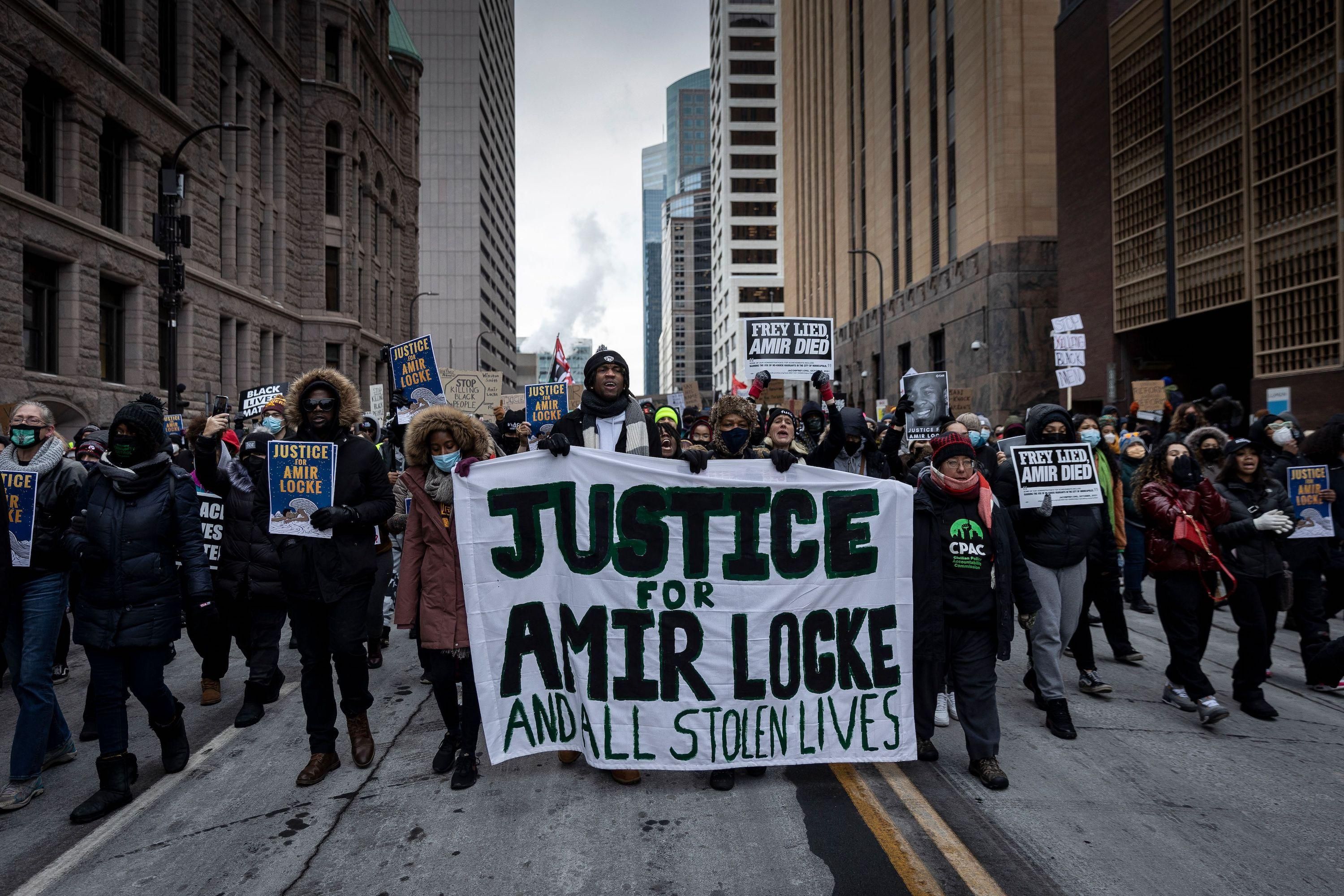
Criminal charges will not be filed against the Minneapolis police officer who shot and killed 22-year-old Amir Locke while the police department was executing a no-knock warrant, Hennepin County Attorney Michael Freeman and Minnesota Attorney General Keith Ellison announced Wednesday.
In a statement calling Locke the victim of a "tragedy" that "may not have occurred absent the no-knock warrant used in this case," Freeman and Ellison said that "there is insufficient admissible evidence to file criminal charges in this case."
The officials said that "the state would be unable to disprove beyond a reasonable doubt any of the elements of Minnesota's use-of-deadly-force statute that authorizes the use of force by Officer [Mark] Hanneman. Nor would the state be able to prove beyond a reasonable doubt a criminal charge against any other officer involved in the decision-making that led to the death of Amir Locke."
Hanneman fatally shot Locke, who was Black, on February 2.
As Minnesota Public Radio explained:
A brief body camera excerpt released by the city after the shooting showed officers opening the door of the apartment where the 22-year-old Locke was staying. Officers did not knock before entering. With the door open, they can be heard shouting "police" and "search warrant."
Seconds later, Locke is seen stirring from underneath a blanket and holding a handgun just before Hanneman shoots him.
According to his family, Locke had no criminal record and was a legal gun owner. The family said Locke bought a gun because he feared for his safety while working as a food delivery driver.
Locke was not named in the search warrant.
The legal team representing Locke's family said Wednesday they were "deeply disappointed" with the decision and his death "should never have happened."
Locke's family and their lawyers also vowed to continue their fight "to ensure accountability for all those responsible for needlessly cutting Amir's life far too short."
Wednesday's announcement, the statement added, "is only the latest reminder that we must work even harder to protect and obtain equal justice and accountability for our communities of color."
The shooting—in the same city where unarmed Black man George Floyd was killed by an officer in May 2020—sparked renewed outrage over police violence and demands for curbs on the use of no-knock warrants.
Last month, U.S. Rep. Ilhan Oman (D-Minn.) introduced the Amir Locke End Deadly No-Knock Warrants Act to address such warrants' "severe and deadly consequences."
"We have the power to save innocent lives with this legislation and must act," she said at the time.
This content originally appeared on Common Dreams - Breaking News & Views for the Progressive Community and was authored by Andrea Germanos.